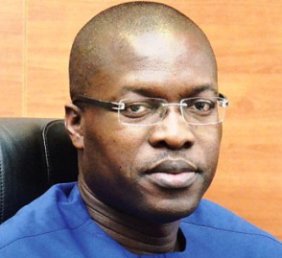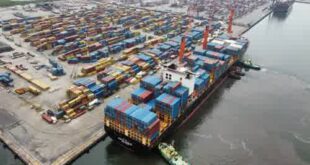By Amos Odeh, Yenagoa
Shell Petroleum Development Company of Nigeria (SPDC) says it is positioned to transform Nigeria into a gas hub within the Gulf of Guinea in line with the Energy Transition sweeping across the globe.
The company said it has keyed into the nation’s Natural Gas Expansion Program introduced in the Year 2020, envisioned to make the country utilize its vast gas resources effectively.
SPDC’s country head, Corporate Relations, Mr. Igo Weli, disclosed this at the weekend in his remarks at the 7th Annual Public Lecture of the Federated Correspondents’ Chapel of Nigeria Union of Journalists, (NUJ), Bayelsa State Council which took place at the Matho Crystal Hotel, Yenagoa.
According to Weli, Shell companies in Nigeria are also working with the federal government of Nigeria to build a network of gas plants and pipelines to help bring power to the country’s growing industrial and commercial sectors.
“This infrastructure will also increase the export of liquefied natural gas (LNG) to meet global demands for power and heating.
“In Bayelsa State, Shell Nigeria Gas signed an agreement with the Nigerian Content Development and Monitoring Board, (NCDMB) to provide gas infrastructure to the NCDMB industrial gas park in Polaku. NCDMB estimates the park could generate over 30,000 local employment opportunities.
“As the only wholly owned Nigerian subsidiary of an international oil company in domestic gas distribution, (Shell Nigeria Gas), SNG, is a symbol of Royal Dutch Shell’s commitment to clean, sustainable energy access and security in Nigeria and across the globe”, Weli stated.
Represented at the occasion by the SPDC’s Government Relations adviser, Bayelsa, Chief Owei Bubo, Weli stressed that the Assa North/Ohaji South Gas Development Project in Imo State expected to be one of the largest gas facilities in Nigeria, as well as others located at Lagos, Oyo, Ogun, Abia and Rivers States are examples of Shell’s long term commitment to Nigeria.
He used the occasion to call on traders and businesses that had traditionally used petrol and diesel generators to power their light and equipment, to now have Shell Nigeria Gas Limited supply natural gas to Independent Power Project (IPP) consortium that provides electricity to the areas.
Weli equally used the occasion to challenge journalists to justify the trust reposed in them by the public by religiously sticking to the ethical standards of the journalism profession in their reportage.
“If reportage does not realize these responsibilities and continues to propagate only coverage that emphasizes and provides fodder for insecurity, picketing of premises of corporate citizens and generally make the environment rougher for business operations, with no respect for rule of law, then we should not be surprised when government is unable to provide the infrastructure for better life.
“We – community people, corporate citizens and the public – are all looking to you, the media, to continue to overcome the challenges that we recognize you face and deliver these services right all the time; helping us to shape up for a future that stares at all of us
“You need to highlight that the Nigerian government must safeguard lives and property; preserve the sanctity of contracts, without which business decisions and investments with longer- term values cannot be made; and in doing so, create an environment that is conducive for business, with employment and revenue for our people”
 PH Mundial – Port Harcourt Online Newspaper News Across The Region
PH Mundial – Port Harcourt Online Newspaper News Across The Region





